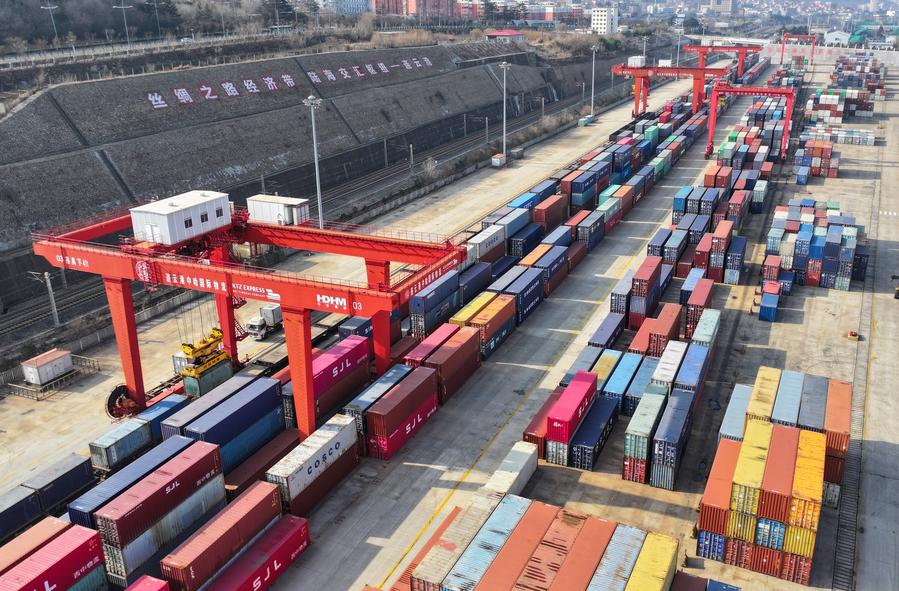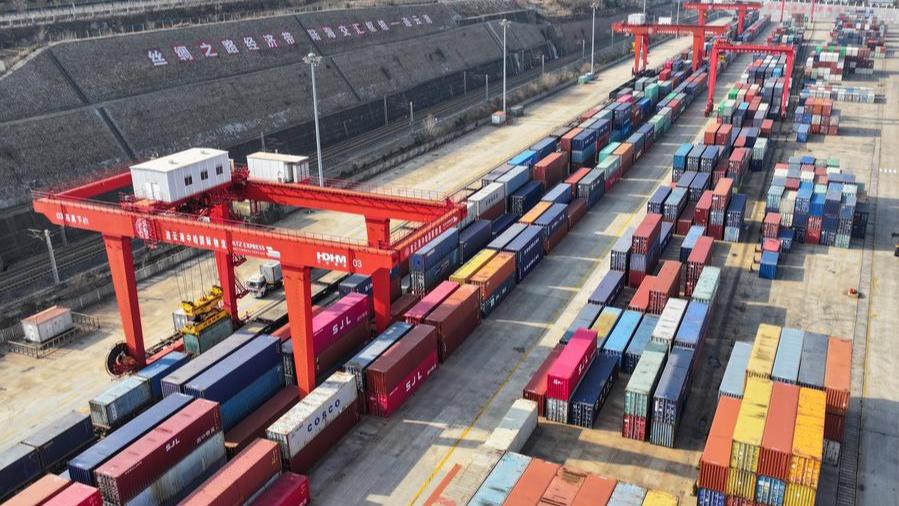
This aerial photo taken on Jan. 1, 2024 shows containers being loaded at China-Kazakhstan (Lianyungang) logistics cooperation base in Lianyungang, east China's Jiangsu Province. (Photo by Wang Jianmin/Xinhua)
Magerram Magerramov, deputy chairman of the People's Party of Kazakhstan, believes the mutual abolition of visas between Kazakhstan and China, which took effect in November last year, will expand business contacts and tourist flows between the two countries.
ASTANA, May 21 (Xinhua) -- China has been a key factor in the development of Kazakhstan and Central Asian countries, a fact that has become more prominent after the first China-Central Asia Summit, said a senior Kazakhstan official in a recent interview with Xinhua.
"Full-scale interactions with China, one of the largest investors and a leading global economy, is a key factor that ensures the long-term sustainable progress for our country," said Magerram Magerramov, deputy chairman of the People's Party of Kazakhstan.
Magerramov believes the mutual abolition of visas between Kazakhstan and China, which took effect in November last year, will expand business contacts and tourist flows between the two countries.
"Citizens of both countries can travel to each other for 30 days without unnecessary problems and bureaucracy. They can travel for medical treatment, take private trips or travel for tourism purposes. Additionally, the number of regular flights between our countries has been increased," he said.
Magerramov noted that the first China-Central Asia Summit, which took place last year in the Chinese city of Xi'an, has reinvigorated bilateral relations and enhanced regional cooperation.
"The documents signed on the sidelines of the summit clearly demonstrate the major plans for the development of the region. These include the construction of roads and main pipelines, the development of science and the introduction of new technologies, as well as plans to boost trade turnover and investment," he said.
According to the official, the documents also included cooperation in the energy, industry and agriculture sectors, which would benefit all participating countries.
The Xi'an Declaration, signed during the summit, outlines the enormous potential for trade and economic cooperation between the Central Asian states and China, including in new industries such as digital trade and the green economy.
He noted the creation of the China-Central Asia Business Council, the industrial and investment cooperation forum and the development of the China-Central Asia transport corridor as the key highlights of the summit.
"The summit created a good platform for addressing issues of food security and poverty alleviation, as well as the energy deficit," Magerramov added.




 A single purchase
A single purchase









